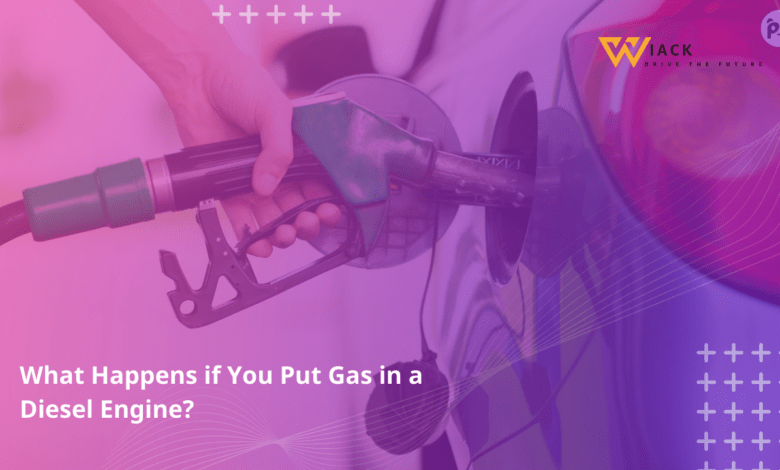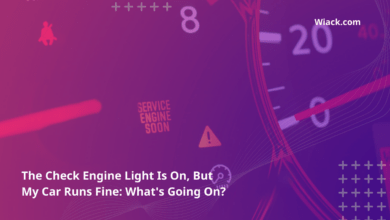What Happens if You Put Gas in a Diesel Engine?

Did you know that putting gasoline in a diesel engine is one of the most common and costly fueling mistakes? According to a recent survey, over 150,000 drivers in the United States alone make this error every year, leading to millions of dollars in repair costs. This startling statistic highlights the importance of understanding the consequences of mixing fuel types and how to avoid this potentially devastating mistake.
Understanding the Differences Between Gasoline and Diesel
Before we dive into the effects of putting gas in a diesel engine, it’s crucial to understand the fundamental differences between these two fuel types. These differences are at the heart of why mixing them can cause such significant problems.
Gasoline: A Volatile Fuel
Gasoline is a highly refined, lightweight petroleum product designed for use in spark-ignition engines. Here are some key characteristics of gasoline:
- It’s more volatile and evaporates easily
- It has a lower flash point, meaning it ignites at a lower temperature
- Gasoline requires a spark plug to ignite in the engine
- It has a lower energy density compared to diesel
These properties make gasoline ideal for fast-revving engines but unsuitable for diesel engines.
Diesel: A Thick, Slow-Burning Fuel
Diesel fuel, on the other hand, is heavier and less refined than gasoline. Its unique properties include:
- Higher density and less volatility
- A higher flash point, requiring more heat to ignite
- No need for a spark plug; it ignites under pressure and heat
- Higher energy density, providing more power per gallon
Importantly, diesel fuel also acts as a lubricant for the engine’s fuel system components, a crucial function that gasoline cannot perform.
The Impact of Gasoline on a Diesel Engine
When gasoline is put in a diesel engine, it can cause a range of problems, from minor performance issues to catastrophic engine failure. Let’s explore the potential consequences in detail.
Fuel System Problems
The diesel fuel system is particularly vulnerable to diesel engine contamination by gasoline. Here’s why:
Reduced Lubrication
Diesel fuel acts as a lubricant for the fuel pump and injectors. Gasoline, being a solvent, strips away this lubrication. This can lead to:
- Increased friction in the fuel pump
- Rapid wear of fuel system components
- Potential seizure of the fuel pump or injectors
Even a small amount of gasoline can significantly reduce the lubricating properties of diesel fuel, potentially causing damage within minutes of operation.
Fuel Pump and Injector Damage
Modern diesel engines use high-pressure fuel systems that rely on the properties of diesel fuel to function correctly. When gasoline is introduced:
- The fuel pump may overheat due to lack of lubrication
- Injectors can be damaged by the thinner gasoline passing through at high pressure
- Seals and gaskets in the fuel system may degrade due to gasoline’s corrosive properties
These issues can lead to expensive repairs or even the need for complete fuel system replacement.
Combustion Issues
The differences in how gasoline and diesel ignite can cause serious problems in the engine’s combustion chamber.
Pre-detonation
Gasoline has a lower ignition temperature than diesel. In a diesel engine, this can cause:
- Fuel igniting too early in the compression stroke
- Uncontrolled combustion leading to engine knocking
- Potential damage to pistons, connecting rods, and other engine components
This premature ignition can cause significant damage to the engine’s internal parts, potentially requiring a complete engine rebuild.
Incomplete Combustion
Diesel engines are not designed to burn gasoline efficiently. This can result in:
- Incomplete fuel combustion
- Increased emissions of unburned hydrocarbons
- Reduced engine power and efficiency
- Potential clogging of the exhaust system and catalytic converter
Over time, these issues can lead to decreased engine performance and increased maintenance costs.
Recognizing the Problem
If you’ve accidentally put gasoline in a diesel engine, it’s crucial to recognize the signs quickly to minimize damage. Here are some indicators to watch for:
Unusual Engine Sounds
One of the first signs of fuel type mix problems is unusual engine noise:
- Knocking or pinging sounds, especially under acceleration
- Increased engine roughness or vibration
- Louder than normal operation
These sounds indicate that the engine is not running smoothly due to the incorrect fuel mixture.
Difficulty Starting
If you’ve put gas in your diesel engine, you might notice:
- The engine is harder to start than usual
- It may crank for longer before starting
- In some cases, the engine may not start at all
This is because diesel engines rely on the compression of diesel fuel to ignite, which doesn’t work properly with gasoline.
Reduced Power
Once running, an engine with gasoline in the diesel fuel system may exhibit:
- Sluggish acceleration
- Reduced overall power output
- Frequent stalling or misfiring
These symptoms occur because the engine cannot efficiently burn the gasoline-diesel mixture.
What to Do If You Put Gas in a Diesel Engine
If you realize you’ve made the mistake of putting gasoline in your diesel engine, taking quick action is crucial to minimize damage and repair costs.
Stop the Engine Immediately
The most important step is to stop the engine as soon as you realize the mistake:
- If you haven’t started the engine, don’t turn the key in the ignition
- If the engine is running, pull over safely and turn it off immediately
- Do not restart the engine under any circumstances
The less the engine runs with the incorrect fuel, the better chance you have of avoiding serious damage.
Contact a Mechanic
Once the engine is off, your next step should be to contact a professional:
- Call a tow truck to transport your vehicle to a repair shop
- Reach out to diesel engine specialists or fuel system technicians
- Explain the situation clearly, including how much gasoline was added
Professional help is essential for properly addressing diesel engine contamination.
Don’t Attempt to Start the Engine Again
It’s crucial to resist the temptation to “drive it off” or try to make it to a repair shop:
- Even a short drive can cause extensive damage
- Starting the engine can circulate the contaminated fuel, spreading the problem
- Waiting for professional help is always the safest and most cost-effective option
Remember, the cost of a tow is far less than the potential repair bill for a severely damaged engine.
Avoiding the Mistake
Prevention is always better than cure when it comes to fuel compatibility issues. Here are some tips to help you avoid putting gas in your diesel engine:
Familiarize Yourself with Fuel Nozzles
Gasoline and diesel fuel pumps typically have different nozzle sizes:
- Diesel nozzles are usually larger in diameter
- Gasoline nozzles are designed not to fit in diesel fuel tanks
- However, diesel nozzles can fit in gasoline tanks, so stay vigilant
Always double-check the nozzle size before fueling.
Double-Check the Fuel Pump
Before you start fueling, take a moment to confirm you’re at the right pump:
- Diesel pumps are often marked with yellow or black handles
- Gasoline pumps typically have green or black handles
- Some stations have separate diesel islands
Developing a habit of checking can save you from a costly mistake.
Read Fuel Pump Labels Carefully
Fuel stations usually clearly label their pumps:
- Look for “Diesel” or “Diesel Fuel Only” labels
- Don’t rely solely on color-coding, as this can vary between stations
- If you’re unsure, ask a station attendant for help
Taking an extra few seconds to read the labels can prevent hours of hassle and expensive repairs.
Potential Damage and Repair Costs
The extent of damage and associated repair costs can vary widely depending on how quickly the mistake is caught and how much gasoline was added to the diesel fuel.
Fuel System Replacement
In many cases, the entire fuel system may need to be replaced:
- Fuel pump replacement can cost between $500 and $2,500
- New fuel injectors can range from $350 to $850 each
- Fuel lines and filters will also need to be replaced
The total cost for fuel system replacement can easily exceed $3,000 to $5,000.
Engine Repair
If the contaminated fuel has caused internal engine damage:
- Piston or connecting rod replacement can cost $1,500 to $3,000 per cylinder
- A full engine rebuild can range from $5,000 to $10,000 or more
- In severe cases, a complete engine replacement might be necessary, potentially costing $10,000 to $20,000
These costs underscore the importance of addressing the issue immediately.
Towing and Labor Charges
Don’t forget to factor in additional costs:
- Towing fees can range from $75 to $300, depending on distance
- Diagnostic fees at repair shops typically run $80 to $150
- Labor costs for fuel system cleaning and repair can add several hundred dollars to the bill
Even if you catch the mistake early, you’re likely looking at a minimum of $500 to $1,000 in towing and repair costs.
Conclusion: A Costly Mistake to Avoid
Putting gasoline in a diesel engine is a serious error that can lead to extensive damage and hefty repair bills. The key takeaways from this article are:
- Understand the fundamental differences between gasoline and diesel fuel
- Be aware of the potential consequences of fuel mixing, including reduced lubrication and combustion issues
- Recognize the signs of incorrect fuel use, such as unusual engine sounds and reduced power
- Take immediate action if you realize you’ve made the mistake – stop the engine and seek professional help
- Implement preventive measures, like double-checking fuel pump labels and nozzle sizes
By staying informed and vigilant, you can avoid this common but costly mistake. Remember, when it comes to fueling your diesel engine, it’s always better to be safe than sorry. If you ever find yourself unsure about proper fueling or maintenance procedures, don’t hesitate to consult your vehicle maintenance guides or seek advice from automotive forums and professional mechanics. Your engine’s health – and your wallet – will thank you for it.
Get the latest car news, reviews, and prices at Wiack.com. Your one-stop destination for all things automotive.





